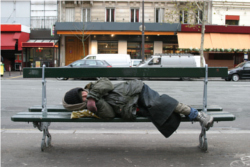
The War in Iraq – Is it still worth working for peace?
“It was an outrage, an obscenity. The severed hand on the metal door, the swamp of blood and mud across the road, the human brains inside a garage, the incinerated, skeletal remains of an Iraqi mother and her three small children in their still-smouldering car. Two missiles from an American jet killed them all –… Read more »






